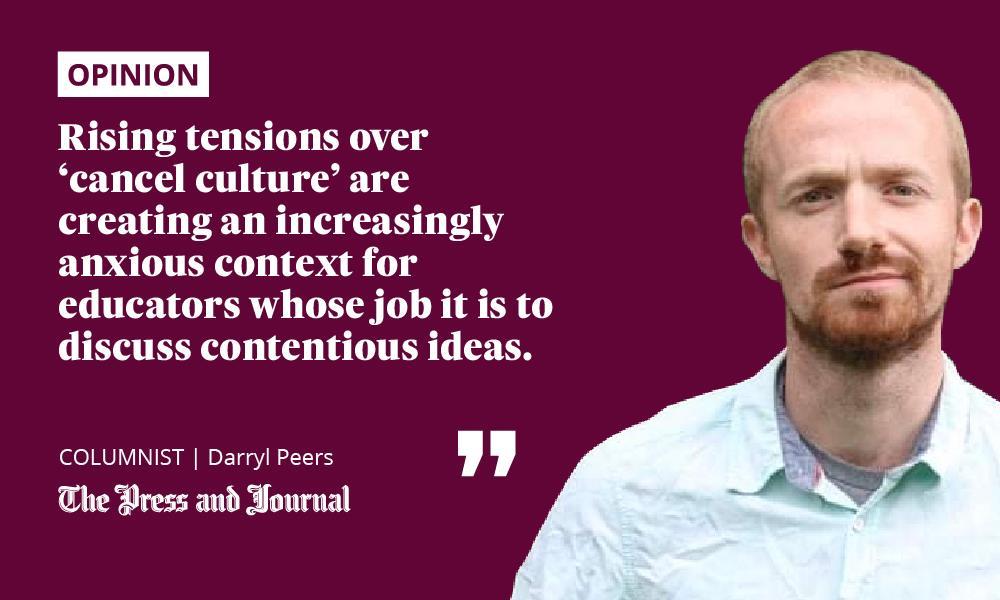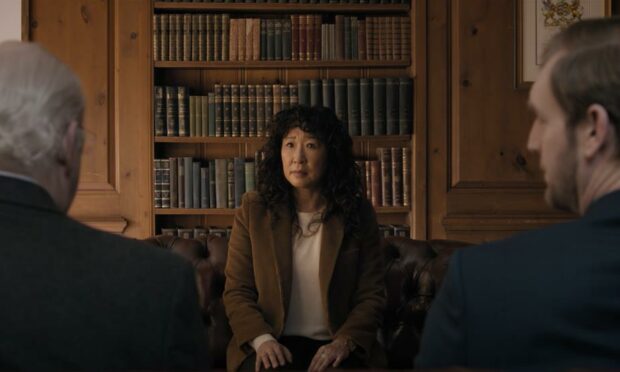New Netflix comedy The Chair has been well received since it was released by the streaming giant on August 20, and with good reason.
The show deftly handles a range of controversial topics, namely the generational divides at play in debates over “cancel culture”, allowing for complexity on all sides. This is a welcome reprieve from media representations of the topic, which usually vilify one side or another.

Set in a fictional Ivy League university in the US, perhaps The Chair’s greatest achievement is that, in 30-minute firecracker episodes, it comprehensively tackles current hot-button issues while keeping its audience laughing along the way. The show is absolutely a comedy.
In this way, it reflects a reality of life not often presented by TV shows which fit into neat genre categories: the serious happens right next to the hilarious, the dramatic next to the mundane.
This is a reality that isn’t always acknowledged beyond the TV set, either.
Woke madness?
In April this year, the University of Aberdeen Students’ Association voted to lobby the university so that content warnings would become compulsory in all subjects.
If the university adopted the policy, it would mean that staff would need to attach a warning to lectures, teaching materials, reading lists and so forth, if the subject matter could be potentially distressing to students.
The idea, a student proposing the policy said, is not to allow students to opt out of learning about particular topics, but to give them a heads-up so they aren’t surprised if they encounter material that recalls upsetting experiences from their own pasts.
The proposal was described by the Daily Express as “woke madness” and by a writer in The Herald as a result of “our uncritical embracing of the modern therapeutic culture”.
None of which sounds very funny, does it? Reinforcing why The Chair’s angle is a refreshing new take on the topic.
Today’s lecturers are working under fraught conditions
What the programme conveys is that, whether it is coming from students, the media, or the upper echelons of their own institutions, the pressure generated by this debate ultimately comes to bear on the academics teaching the subjects.
In the show, the work of resolving a series of disputes and controversies falls at the door of Ji-Yoon Kim, the titular head of department, played by Sandra Oh.
“The Chair shows how, when controversies arise, it is often the lecturers who experience the consequences, whether that manifests as job loss, disciplinary action, extra workload, or reputational damage
Not dissimilarly, student pressure to include content warnings places workload on lecturers to identify and report potential risks in their teaching materials. Even if a lecturer performs this task in the most comprehensive manner, they cannot anticipate every potential trigger.
Should a student complain about an omission, the responsibility will fall on the lecturer.
The Chair shows how, when controversies arise, it is often the lecturers who experience the consequences, whether that manifests as job loss, disciplinary action, extra workload, or reputational damage.
These are extremely fraught conditions to be working under.
New institutional policies need support
If universities are going to implement content warning policies, they need to put infrastructure in place to support the academics who will have to interpret them.
Students can help as well. For those looking at this as the latest chapter in their fight against systemic inequality, they should remember that no literature professor is a symbol for the patriarchy, even if it seems that their reading list is.
In The Chair, an incident in a professor’s lecture becomes a decontextualised meme and explodes into a scandal. Students protest on good grounds; the professor rightly says it has been taken out of context; and Ji-Yoon Kim, the professor’s boss, is pressured by her superiors to resolve the dispute quickly.
Her efforts lead to her vilification among the student body. Are her students holding her, the first woman of colour to have held her post, responsible for the misconduct of her white male colleague in the name of anti-racism? Isn’t that paradoxical?
The answer to this, and much else in the show, resides in a grey area.
People on all sides are generally trying to do what they think is right
The Chair boasts a superb ensemble cast who bring to life a script that does not sympathise with or demonise any of its characters, even when the characters sympathise with or demonise each other.
We are not watching a Marvel movie. People are not easily organised into the categories of hero and villain. They, like most of us, are motivated by reasons personal to their own position.
And this suggests something that can be taken from both the show and an English degree: even if it appears otherwise, everything exists in a context that influences it.
“Laughing together can carry us all a lot further than a crossfire of unkind words
At the moment, rising tensions over “cancel culture” are creating an increasingly anxious context for educators whose job it is to discuss contentious ideas.
Add to that a wider social context which devalues and defunds arts and humanities departments because their subjects are not seen as useful for getting a job, and it’s not an enviable position.
There is a responsibility on all parties involved to de-escalate the tension that has built up around topics like content warnings.
Media organisations, for one, can report on it in a way which appreciates that no one on any side of the issue is “mad” or “uncritical”. People are generally trying to do what they think is right.
As The Chair suggests, laughing together can carry us all a lot further than a crossfire of unkind words.
Darryl Peers is a writer from the north-east of Scotland

